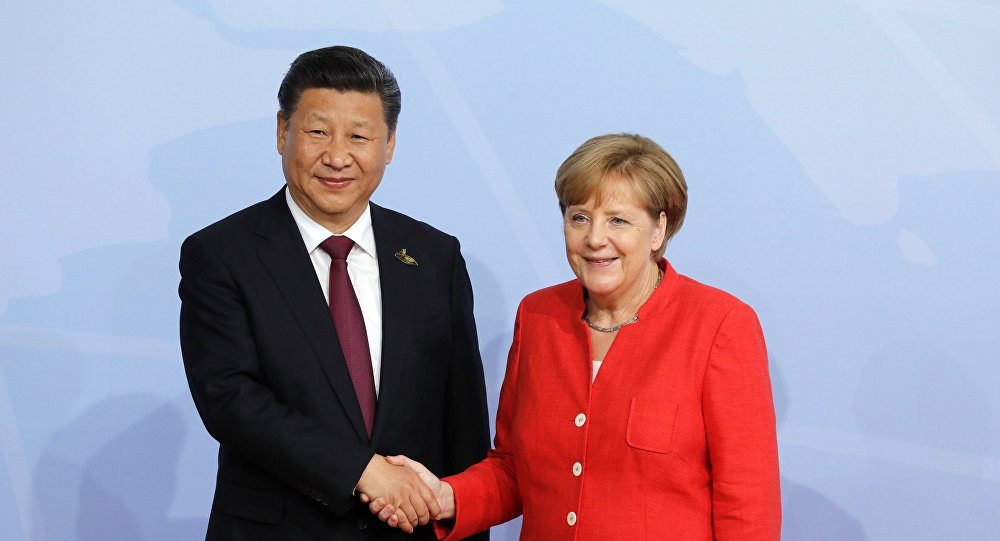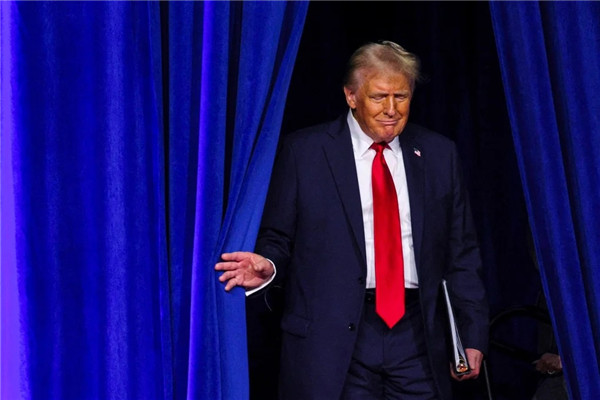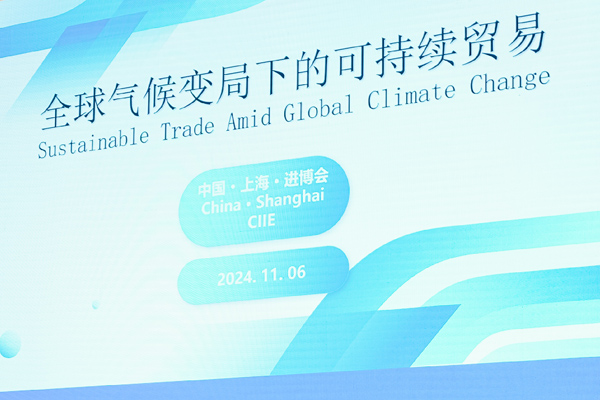【SPUTNIK】China, Germany to Harmonize Positions at G20
July 07 , 2017China and Germany, countries which are called beneficiaries of globalization by experts, could find common ground at the upcoming G20 Summit in Hamburg.

China and Germany, both main beneficiaries of globalization, are likely to find common ground at the upcoming G20 Summit in Hamburg despite massive anti-globalization protesters flooding the streets of the German port city, experts told Sputnik on Friday.
BALANCED GROWTH
Demonstrators fighting for a wide range of causes occupied the streets of Hamburg in recent days, in anticipation of the annual gathering of leaders from 20 major economies of the world, taking place on July 7-8.
Activists called on local residents to take part in a demonstration dubbed “Welcome to Hell,” organized by an anti-capitalist group and aiming to express protest and resistance against leaders of capitalist regimes all over the world.
Another group launched a protest with an artistic touch, titled “1000 Gestalten,” where 1,000 zombie-like creatures covered in crusty clay flocked through the streets of Hamburg on Wednesday. The demonstration, in the form of an art performance, was a symbol for a solitary and open-minded civil society, organizers said.
Local law enforcement officials said about 20,000 police officers would be deployed during the G20 meeting to ensure security in the city.
Unlike the last time when the summit took place in the city of Hangzhou in eastern China, where local authorities made sure no sign of opposition would occur, Hamburg is expected to offer a completely different environment for world leaders.
Despite foreseeable chaotic scenes in the streets and vocal opposition from different groups, China, which chaired the summit last year, is expected to find a lot of common ground with the host Germany, as both nations are main beneficiaries of globalization thanks to their strongholds in the global manufacturing chain, experts told Sputnik.
“Both China and Germany have strong manufacturing industries and benefited greatly through the globalized economy. They should have a lot of common language in promoting the continuation of globalization,” Wang Huiyao, the president of Center for China and Globalization (CCG)in Beijing, told Sputnik, adding that German Chancellor Angela Merkel may feel she has got a helping hand from Chinese President Xi Jinping after US President Donald Trump made things awkward during the G7 Summit in Italy earlier this year.
Official figures showed Germany’s trade surplus reached a new record of $270 billion in 2016, while China’s trade surplus stayed strong at $511 billion last year, despite a 7.7 percent drop in exports from the previous year.
However, the Beijing-based expert acknowledged that there was some negative impact from globalization, especially on specific industries in certain countries, and it is important for global leaders to address those issues while pushing forward the process of globalization.
“We do need to reflect on the negative impact of globalization and promote balanced growth globally to make sure the benefits reach ordinary people in different countries,” he said.
Trump has long accused China of stealing manufacturing jobs from the United States and promised to bring those jobs back to the country during last year’s presidential campaign.
Merkel told German magazine Die Zeit earlier this week that, while Germany is looking at the possibilities of cooperation to benefit everyone, globalization is seen by the US administration more as a process that is not about a win-win situation but about winners and losers.
As nations including China, Germany and the United States improve their economic structure through the globalization process, it is possible for certain kinds of manufacturing to return to advanced economies, Wang suggested.
“Chinese auto glass manufacturer Fuyao Glass decided to move its manufacturing to Ohio in the US to reduce cost, by bringing production closer to its customers in North America,” he said.
In October 2016, Chairman of Fuyao Glass Cho Tak Wong pledged to invest $500 million into an automotive glass plant in Ohio, which employs about 2000 workers.
Wang also sees an opportunity for Chinese companies with rich experience in infrastructure construction to be involved in similar projects in the United States after Trump promised to “make America great again” by improving the country’s aging infrastructure.
PAINFUL TRANSITION
Americans voters in states such as Michigan, Ohio and Pennsylvania, where manufacturing used to dominate the local economy, broke away from their tradition to support the Democratic Party and voted for Trump during last year’s US presidential election.
After taking office, Trump threatened to wage a trade war against China and Germany by introducing stiff tariffs as part of his efforts to push US companies to move manufacturing jobs back to the country.
But economists said it would be impossible for Trump to succeed in bringing those jobs back to as it is against the rule of the market economy.
“There’s no way for Trump, even if he would use the most severe trade policies, to bring American manufacturing jobs back to an appreciable extent,” Alan Deardorff, the professor of international economics and public policy at the University of Michigan, told Sputnik.
US automaker Ford Motor said in late June that it plans to centralize production of the next generation of its iconic compact car, the New Ford Focus, in China, instead of Michigan or Mexico. Ford currently builds its Focus compact cars in Michigan, as well as in China and Europe.
The US economist pointed out that technology improvements such as automation and robots was also a factor that led to a loss of manufacturing jobs in the United States, in addition to losing those jobs to countries like China.
Traditional manufacturing hubs in the United States, such as Detroit in Michigan or Pittsburgh in Pennsylvania, need to go through a painful transitional period to upgrade local industrial structures to move away from manufacturing, Deardorff suggested.
“The Detroit area suffered tremendously because of the decline of the auto industry,” he said, adding that local population dropped by more than half.
The economic professor noted that Pittsburgh, which used to be the US center for steel production half a century ago, was a successful example of this kind of industrial transition.
“They (Pittsburgh) went through a terrible time, but they have come back, by shifting to healthcare and education. Major hospitals and universities helped the city thrive again,” Deardorff said.
NO ALTERNATIVE
Germany police clashed with thousands of protesters taking part in the “Welcome to Hell” demonstration near the summit venue on Thursday. Local authorities said dozens of police officers were injured during violent clashes throughout the evening. Local police expected about 100,000 protesters to march in the streets of Hamburg during the 2-day summit.
The organizers of the demonstration are a group of anti-capitalist activists who blame the capitalist economic model for global exploitation and impoverishment. The group claimed “the apparently unchallenged triumph of capitalism has left behind a trail of devastation.”
Ironically, one of the key participants of the G20 summit and a main beneficiary of globalized capitalist economy is China, which still labels itself as a Socialist country.
Economists suggested that, despite flaws in the capitalist economic system, there is no viable alternative that has been proven to be successful.
“The alternative has been tried in the Soviet Union and in China before Deng Xiaoping. It didn’t really deliver the goods,” Tony Makin, the professor of economics and director of the Griffith APEC Study Center at Griffith University in Australia, told Sputnik, adding that China is the best example where the leaders realized that a market economy delivers growth.
The Australian economist believes that globalization should not be reversed, but instead, local authorities need to figure out ways to compensate those vocal minority losers in the globalized economy.






